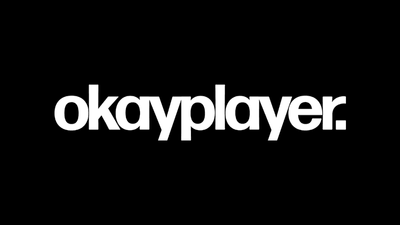‘Dreamstates’ Explores Love By Indie Means At BlackStar Film Festival
Langston Hughes opens the poem "Harlem" with the question, “What happens to a dream deferred?” Anisia Uzeyman seeks to provide the answer with her 2015 directorial debut Dreamstates, which screened at the 2016 BlackStar Film Festival in Philadelphia on August 6th. Armed with a pair of iPhones, Uzeyman contrasts the American Dream with endless highway and sun bleached relics of fading Americana -- the euphoria of falling in love with the palpable angst of a failing partnership. The film starring Uzeyman (Indigo) and husband, Saul Williams (Spoonie), begins in a dream, where the pair first meet before crossing paths in the real world when she joins his touring band.
They set out together on a journey across 32 states that will leave viewers wondering what could have been, with respect to both their love affair and the haunting possibilities of a nation adept at selling a dream to the world that is only fully realized by a very fortunate few. Uzeyman expertly animates the latter with desolate, sometimes oversaturated landscapes, stark imagery, video loops and shadows bookended by never-ending stretches of open road that contradict the mythical America of migrant fantasies, where the streets are said to be paved with gold.
Born in Rwanda and educated at L’école du Théâtre National de Rennes in France, Uzeyman worked in stage and film as a writer and actor before taking the director’s chair. The decision to shoot her first effort with iPhone 4 and 4s, is reflective of the DIY spirit planted firmly at the intersection of the arts and emerging tech -- one that has historically informed black art in the United States and abroad. In Dreamstates, Indigo and Spoonie fall in love in a string of embraces and sweet nothings uttered in the close quarters of a tour bus and deftly illustrated from the vantage of a smartphone, which places the viewer squarely between two lovers at their most vulnerable.
Uzeyman later captures the insecurity and alienation that can portend a crumbling relationship. The couple falls out of love in equally intimate but awkward exchanges and pregnant pauses that say much more than either character could about the status of their journey, which fades across a series of avant-garde performances and backstage exchanges that give viewers a behind-the-scenes look at the major players in the Afropunk movement. Uzeyman’s weapons of choice reinforce the importance of the left-of-center cultural phenomenon, which has grown beyond the borders of Brooklyn to venues in Atlanta and Paris in recent years.
More than exploring what Indigo and Spoonie might have been or speaking to Uzeyman’s fascination with the inner workings of America, Dreamstates is a solid example of what is attainable with a few basic tools, some sweat equity and the willingness to tell a story without the permission, funding or approval of the film industry establishment -- things, like thick skin, that are necessities for creatives of color without access to big budgets and major studios during the production process.
The fact that people have effectively begun to sidestep both the whims of Hollywood and a lack of big ticket resources with little more than a handful of devices and apps means that the question posed by Hughes is one storytellers may no longer forced to ponder. They are charged, instead, with answering a clarion call to challenge traditional notions of cinematic excellence and bring the ideas once left to their dreams to the screen "by indie means necessary" -- a feat accomplished by Uzeyman, whose motivation to create is as accessible as the devices used to capture the film, “I have to witness my time. I have to show what I see because I want to show the people that I love.”
DREAMSTATES TRAILER ©2016 from DREAMSTATES on Vimeo.
